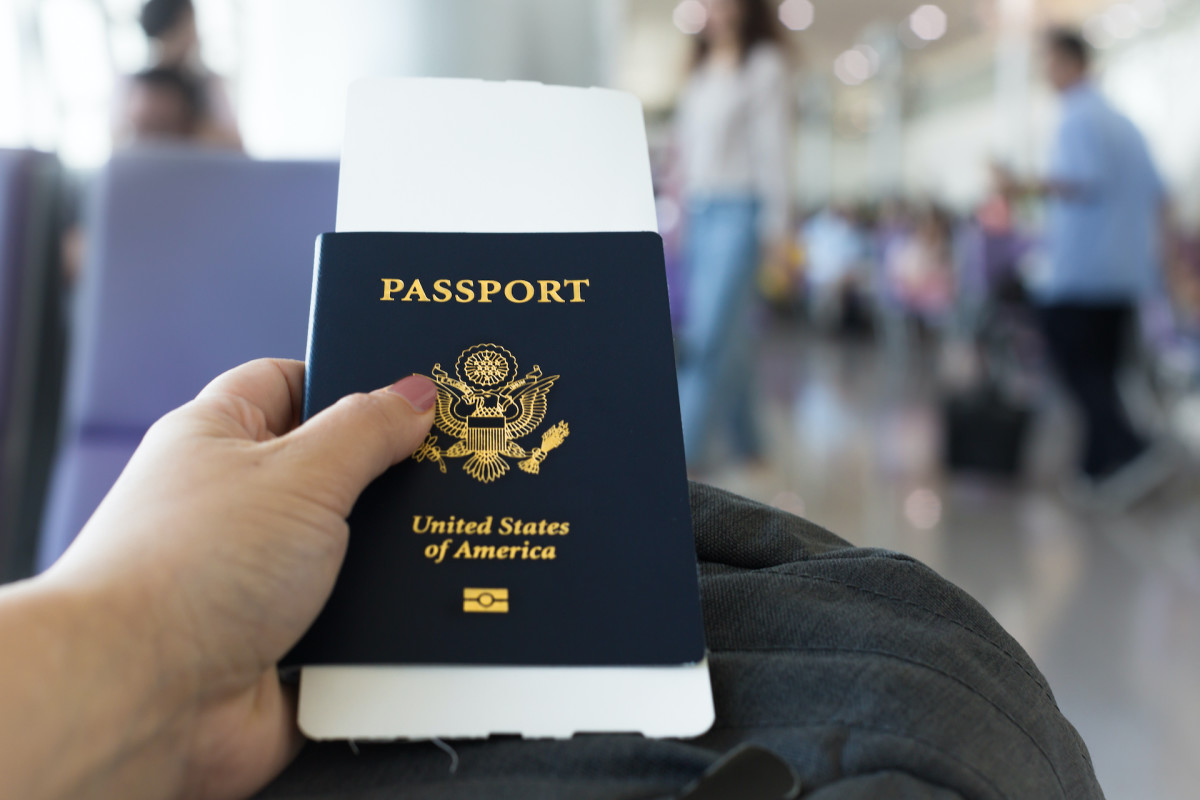
While many aspects of an industrialized world interconnect in the current situation around climate change, there is no doubt that the explosion of air travel over the last few decades is a major contributing factor.
The jet fuel that gets burned to keep a plane engine running is a source of CO2 emissions and, according to a recent University of Oxford study, has contributed to 4% of the world's human-caused global warming to date.
Related: A major airline has found an unusual way to reuse flight attendants' old uniforms
One of the more extreme solutions that has formerly been floated around by climate change activists is the "carbon passport" — a record of how much one flies in a year that, if past a certain threshold, could potentially prevent one from flying for a given period.

Shutterstock
'Expect to see limitations' by 2040, new travel report warns
A new report released by Australia-based travel company Intrepid Travel predicts that such "personal carbon allowances" are a likely scenario as the climate catastrophe worsens.
More Travel:
- A new travel term is taking over the internet (and reaching airlines and hotels)
- The 10 best airline stocks to buy now
- Airlines see a new kind of traveler at the front of the plane
"These allowances will manifest as passports that force people to ration their carbon in line with the global carbon budget, which is 750 billion tonnes until 2050," the report, which was released in partnership with predictive analytics firm The Future Laboratory, reads. "By 2040, we can expect to see limitations imposed on the amount of travel that is permitted each year."
Separate predictions around global warming say that, by the same year, the global temperature will rise by at least 1.5 degrees Celsius. According to the Intrepid Report, this will render popular tourist destinations such as Greece and Majorca in Spain too hot to visit during the summer months and lead to an increase in tourists in traditionally cooler European countries such as Belgium, Slovenia and Poland — a situation that will cause major upheaval not just to the destinations most at risk to the impacts to climate change but also to global tourism trends.
'Tourism must evolve and become regenerative'
While the report is entirely speculative and not clear on how such a "carbon passport" would measure miles traveled or what jurisdiction would be able to enforce it, the travel industry insists that what is currently seen as an extreme measure may soon become mainstream.
This, in turn, may cause a hit to travel agencies that may not be able to bank on frequent travelers for booking trips to faraway destinations. According to Intrepid, the next decade will likely bring with it an explosion of "regenerative travel."
This is already being seen as some travelers consider the environmental impact of their trip and opt for train journeys or choose what can be more expensive but eco-friendly accommodation when visiting locations most impacted by climate change.
But governments can also play a role in providing incentives to choose more sustainable travel — in the Asian island nation of Maldives, the international arrival fee of $6 gets lowered to $3 if the visitors stay at an eco-friendly guest house.
"Tourism must evolve and become regenerative, as the current model is unsustainable," Darrell Wade, the co-founder behind Intrepid, said in a statement. "We must recognize that the future needs to be different from business as usual, and that the climate crisis is not a competitive advantage."
Get exclusive access to portfolio managers and their proven investing strategies with Real Money Pro. Get started now.







